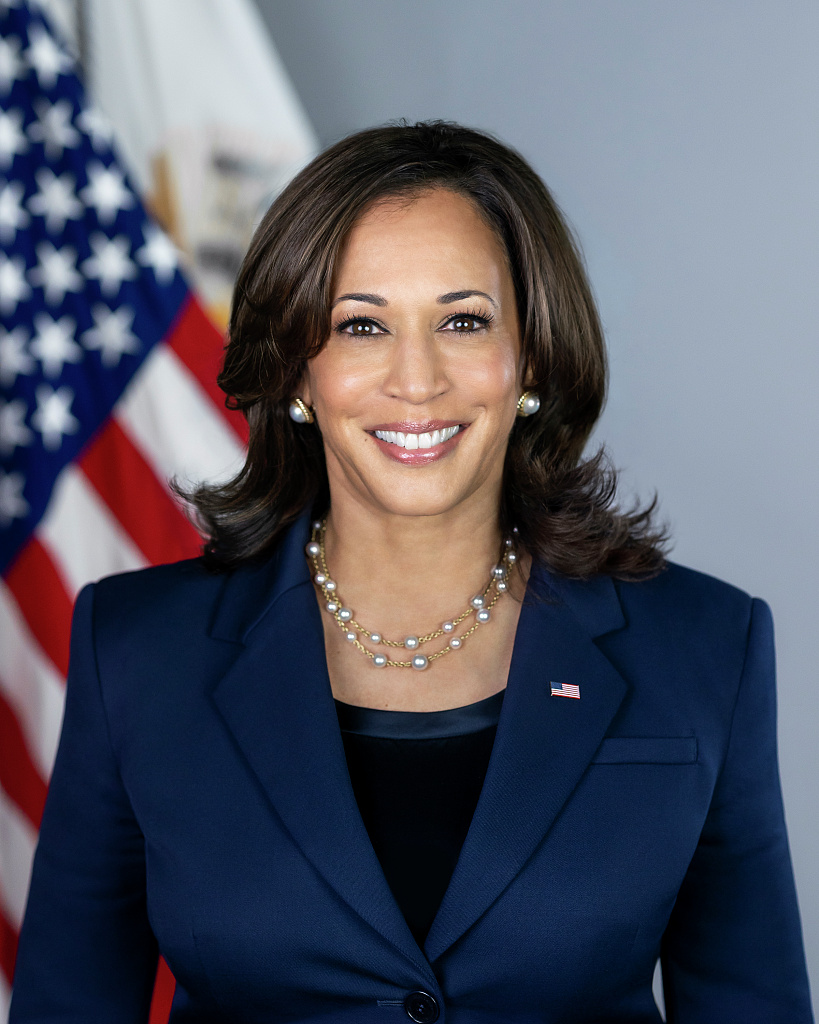Introduction to Kamala Harris
Kamala Harris, the first woman, the first Black woman, and the first South Asian woman to serve as Vice President of the United States, has a background that is as diverse as it is impressive. Born on October 20, 1964, in Oakland, California, to immigrant parents, Harris’s early life was steeped in a rich tapestry of cultural influences and activism. Her mother, Shyamala Gopalan, a breast cancer scientist from India, and her father, Donald Harris, an economics professor from Jamaica, instilled in Kamala a strong sense of justice and the importance of public service.
Harris’s educational journey reflects her commitment to advocacy and leadership. She attended Howard University, one of the most prestigious historically Black colleges in the United States, where she majored in political science and economics. Following her graduation, she earned her law degree from the University of California, Hastings College of the Law. These academic achievements laid a solid foundation for her future endeavors in the field of law and public service.
Her career began in the Alameda County District Attorney’s Office, where she was known for her dedication to prosecuting cases related to child abuse. This early phase of her career demonstrated her unwavering commitment to protecting the vulnerable and advocating for justice. Her professional journey continued to ascend as she took on roles that further cemented her reputation as a formidable legal mind and advocate for reform.
In 2003, Kamala Harris made a significant leap in her career by being elected as the District Attorney of San Francisco. Her tenure was marked by progressive reforms, including initiatives aimed at reducing recidivism and addressing systemic issues within the criminal justice system. This position served as a launching pad for her subsequent election as California’s Attorney General in 2010, where she continued to push for significant legal and policy changes.
Kamala Harris’s early life and career milestones paint a picture of a determined and capable leader who has consistently broken barriers and paved the way for future generations. Her journey from a young girl inspired by her parents’ activism to a trailblazing figure in American politics is a testament to her resilience, intellect, and unwavering commitment to public service.
Early Career in Law and Politics
Kamala Harris’s journey in law and politics began with her role as a Deputy District Attorney in Alameda County, California. During this period, she gained a reputation for her rigorous prosecution of cases involving gang violence, drug trafficking, and sexual abuse. Harris’s commitment to justice and her meticulous approach to legal proceedings quickly distinguished her in the field. Her work in Alameda County laid the groundwork for her future endeavors and showcased her dedication to public service and the law.
In 2003, Harris’s career took a significant leap forward when she was elected as the District Attorney of San Francisco. As the first woman and the first African American to hold this position, Harris faced numerous challenges but also achieved substantial success. One of her notable accomplishments was the implementation of the “Back on Track” program, which aimed to reduce recidivism among first-time drug offenders by providing them with job training and educational opportunities. This innovative approach reflected Harris’s belief in reformative justice and her dedication to creating pathways for rehabilitation and reintegration into society.
Harris also took a firm stance on issues such as hate crimes and environmental crimes, demonstrating her commitment to protecting vulnerable communities and the environment. Her tenure as District Attorney was marked by an increase in conviction rates while simultaneously pursuing policies that sought to address systemic inequities within the justice system. This balanced approach underscored Harris’s ability to navigate complex legal landscapes while advocating for progressive change.
Despite facing criticism and challenges, Harris’s early career in law and politics set the stage for her future roles and highlighted her strengths as a leader committed to justice, equality, and reform. Her experiences as a Deputy District Attorney and District Attorney of San Francisco were instrumental in shaping her perspectives and policies, which continue to influence her approach to governance and public service.
Kamala Harris as California’s Attorney General
Kamala Harris’s tenure as California’s Attorney General marked a significant period in the state’s legal and political landscape. Serving from 2011 to 2017, she was the first woman and the first African American to hold the position. Her tenure was characterized by a steadfast commitment to justice, consumer protection, and environmental sustainability.
One of Harris’s notable contributions was in the realm of criminal justice reform. She introduced the “Back on Track” initiative, aimed at reducing recidivism by providing first-time, low-level offenders with educational and employment opportunities instead of incarceration. This program became a model for similar initiatives across the country and underscored Harris’s innovative approach to criminal justice.
In consumer protection, Harris took a strong stance against predatory practices. She secured a $25 billion settlement for California homeowners who were victims of unfair mortgage practices during the foreclosure crisis. This landmark settlement provided much-needed relief to countless families, reinforcing Harris’s dedication to protecting consumers from financial exploitation.
Harris was also an ardent advocate for environmental issues. She pursued significant litigation against companies violating environmental laws, including a $14 million settlement with a major utility company for improper disposal of hazardous waste. Additionally, she supported legislation aimed at reducing carbon emissions and promoting renewable energy, aligning California with progressive environmental standards.
Throughout her tenure, Harris’s actions reflected a balanced approach to law enforcement and public service. Her efforts in criminal justice reform, consumer protection, and environmental advocacy have left an indelible mark on California’s legal framework and continue to influence national policies. Kamala Harris’s role as Attorney General showcased her ability to navigate complex issues and implement reforms that resonate with broader societal needs, setting a precedent for future leaders.
U.S. Senator: Legislative Achievements and Advocacy
During her tenure as a U.S. Senator from California, Kamala Harris established herself as a formidable force in the legislative arena. Elected in 2016, Harris’s legislative accomplishments reflect her unwavering commitment to addressing pivotal issues such as healthcare, immigration, and criminal justice reform. Her legislative initiatives underscore a profound dedication to enhancing the lives of her constituents and the broader American populace.
On healthcare, Harris co-sponsored the Medicare for All Act, advocating for a single-payer healthcare system aimed at ensuring universal coverage. Her passionate speeches on the Senate floor highlighted the necessity of affordable healthcare for all, emphasizing its role as a fundamental human right. In the realm of immigration, Harris was a vocal critic of the Trump administration’s policies, particularly the separation of families at the border. She co-sponsored the Dream Act, aiming to provide a pathway to citizenship for undocumented immigrants brought to the U.S. as children, underscoring her commitment to humane immigration reform.
Criminal justice reform was another cornerstone of Harris’s legislative agenda. She introduced the Justice in Policing Act, which sought to address systemic racism and police brutality through comprehensive reforms. Her advocacy extended to the First Step Act, a bipartisan effort that focused on reducing recidivism and reforming sentencing laws. Harris’s work in this domain showcased her ability to navigate complex issues and her dedication to achieving equitable justice.
Harris also served on key Senate committees, including the Judiciary Committee, where she played a pivotal role in judicial nominations and oversight. Her incisive questioning during hearings, particularly in high-profile cases, highlighted her legal acumen and commitment to accountability. Additionally, her involvement in the Homeland Security and Governmental Affairs Committee, as well as the Select Committee on Intelligence, demonstrated her comprehensive approach to national security and governance.
Throughout her Senate career, Kamala Harris exemplified a willingness to engage in bipartisan cooperation. Despite the polarized political landscape, she sought common ground on various issues, from criminal justice reform to economic policies. Her notable speeches, characterized by their clarity and conviction, often served as rallying calls for progress and justice.
The Road to the Vice Presidency
Kamala Harris’s journey to becoming the Vice President of the United States is a tale of determination, strategic acumen, and breaking barriers. Her 2020 presidential campaign, though initially promising, faced numerous challenges. Despite these obstacles, Harris’s tenacity and political prowess remained unwavering. Her campaign was marked by a commitment to social justice, economic equality, and comprehensive healthcare reform, which resonated with a broad spectrum of voters.
In a pivotal moment of the 2020 election cycle, Joe Biden selected Kamala Harris as his running mate. This decision was not only strategic but also historic. Harris became the first woman, the first African American woman, and the first person of South Asian descent to be nominated for national office by a major party. Her selection was a significant milestone, reflecting the evolving landscape of American politics and the Democratic Party’s commitment to diversity and inclusion.
The campaign trail was fraught with key moments that would define Harris’s role in the election. Her debate performances and public appearances showcased her prosecutorial skills and ability to articulate policy positions effectively. Harris’s background as a former Attorney General and U.S. Senator provided her with a robust platform to address critical issues ranging from criminal justice reform to climate change. Her ability to connect with various demographics, particularly women and minority communities, played a crucial role in energizing the Democratic base.
Moreover, the Biden-Harris campaign employed a multifaceted strategy that leveraged digital platforms, grassroots organizing, and coalition-building to mobilize voters. Harris’s dynamic presence and her ability to engage with constituents across the country were instrumental in the campaign’s success. Her historic election as Vice President not only shattered glass ceilings but also set the stage for a new era in American leadership, one that embraces diversity, equity, and progressive change.
Historic Firsts and Breaking Barriers
Kamala Harris’s ascension to the Vice Presidency marks a series of unprecedented milestones in American history. As the first female, first Black, and first South Asian Vice President of the United States, Harris has broken through significant barriers, setting a remarkable example for future generations. Her election symbolizes a progressive shift in the sociopolitical landscape, reflecting a nation’s evolving stance on diversity and inclusion.
Harris’s achievement holds immense cultural and social significance, reshaping the narrative around leadership in a country with a complex history of racial and gender discrimination. Her success serves as a beacon of hope and possibility, particularly for young women and people of color who see in her a reflection of their own potential. The Vice President’s story is one of perseverance and dedication, demonstrating that barriers, no matter how formidable, can be overcome.
The impact of Harris’s election extends beyond symbolic representation. It sparks a broader conversation about the importance of diverse perspectives in governance and policy-making. Her presence in one of the highest offices in the land challenges long-standing stereotypes and paves the way for more inclusive and equitable practices across all sectors. Harris’s journey, from her early career as a prosecutor to her tenure as a U.S. Senator, underscores the value of diverse experiences in shaping effective leadership.
Moreover, Harris’s role as Vice President has inspired a new generation of leaders who are more representative of the nation’s demographics. Her groundbreaking achievements encourage young leaders to aspire to positions of influence, driving a wave of change that is likely to transform American politics in the years to come. Kamala Harris’s trailblazing path not only honors the struggles of those who came before her but also charts a promising course for future generations.
Policy Initiatives and Key Issues as Vice President
As Vice President, Kamala Harris has been a pivotal figure in addressing some of the most pressing issues facing the United States. Her role in the Biden administration is multifaceted, encompassing a wide range of policy initiatives aimed at COVID-19 response, economic recovery, immigration reform, and foreign policy. Harris’s leadership style, characterized by her proactive and inclusive approach, has significantly contributed to shaping national and international policies.
One of her primary focuses has been the COVID-19 response. Harris has played a critical role in promoting vaccination efforts and ensuring equitable distribution of resources. Her advocacy for public health measures and collaboration with health experts has been instrumental in the administration’s strategy to curb the pandemic. By prioritizing science-based policies and emphasizing the importance of community engagement, Harris has helped navigate the complex landscape of pandemic response.
In terms of economic recovery, Harris has been actively involved in initiatives aimed at rebuilding the economy and supporting working families. She has championed policies that promote job creation, small business support, and workforce development. Her efforts to address systemic economic disparities have included advocating for increased minimum wage, expanded access to affordable childcare, and enhanced support for minority-owned businesses. Harris’s commitment to economic justice underscores her broader vision for a more equitable and inclusive economy.
Immigration reform is another key area where Harris has made significant contributions. She has been a vocal advocate for comprehensive immigration reform, emphasizing the need for a fair and humane system. Harris’s work on addressing the root causes of migration, particularly in Central America, reflects her holistic approach to this complex issue. Her initiatives aim to create sustainable solutions that address economic, social, and political challenges in the region, thereby reducing the pressures that drive migration.
On the foreign policy front, Harris has engaged in diplomacy and international relations, representing the United States on the global stage. Her efforts to strengthen alliances, promote human rights, and address global challenges such as climate change and cybersecurity have been notable. Harris’s diplomatic engagements underscore her commitment to multilateralism and her belief in the importance of collaborative solutions to global issues.
Overall, Kamala Harris’s policy initiatives and leadership as Vice President reflect her dedication to addressing critical issues with a forward-thinking and inclusive approach. Her contributions continue to shape both national and international policies, demonstrating her commitment to creating a better future for all.
Legacy and Future Prospects
Kamala Harris’s legacy is marked by her historic achievements and unwavering dedication to justice and equality. As the first female Vice President of the United States, and the first of both African American and South Asian descent, Harris has shattered numerous glass ceilings, setting a precedent for future generations. Her tenure has been characterized by a commitment to addressing systemic injustices, championing healthcare reform, and advocating for marginalized communities.
Harris has faced a myriad of challenges throughout her career, from navigating the complexities of a polarized political landscape to addressing critical issues such as immigration reform and criminal justice. Despite these hurdles, she has consistently demonstrated resilience and a profound ability to engage in bipartisan dialogue. Her efforts to bridge divides and foster collaborative solutions have earned her respect across the political spectrum.
Looking ahead, Kamala Harris’s role in American politics is anticipated to continue evolving. Her influence extends beyond her current office, as she remains a prominent advocate for progressive policies and social equity. Speculation about her future ambitions includes potential presidential aspirations, which would further solidify her position as a transformative figure in U.S. politics. Regardless of the specific path she chooses, Harris’s ongoing commitment to public service and her ability to inspire change will undoubtedly shape the nation’s future.
In summary, Kamala Harris’s legacy is one of breaking barriers and championing justice. Her ongoing efforts to address inequities and her potential future endeavors promise to keep her at the forefront of American politics, continuing to influence and inspire generations to come.



